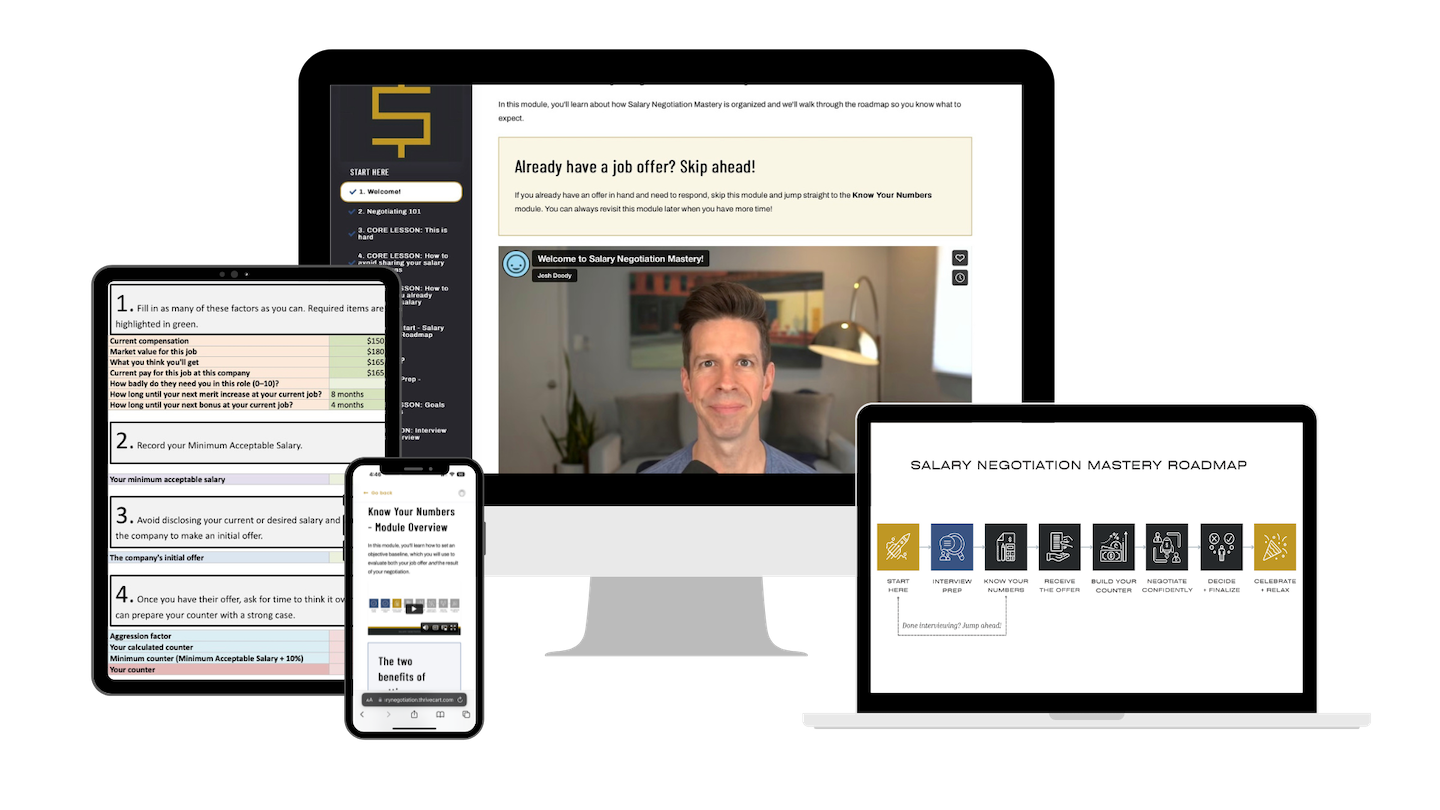Interview prep
How to write a compelling cover letter
You have 60-seconds to make an impression with your cover letter. Why? The person reading your cover letter wants to ball it up, throw it away, and get on with their day. They’re burnt out and have a stack of applications on their deck. They’re an expert at reading resumes and they’ve seen all the tricks. In 30 seconds, they’re going to decide if you’re headed to the shredder or the interview pile. You need to make it easy or them to realize how interesting you are.
Writing a Kick-Ass Cover Letter
Your cover letter serves 3 key purposes:
- It demonstrates your interest in the position
- It lets you identify problems that the company is experiencing and highlight how background will help you solve them
- It shows that you’re an interesting human being
Demonstrating interest in the position
You want to spell your interest out to them. This feels like a no-brainer (Why would you need to spell this out? You turned in the cover letter. Of course you’re interested!), but I’ve had interviews where, until I explicitly said “I am interested in this position, what is the next step to moving forward,” the selection committee wasn’t sure if I was interested in the position. The person reading your cover letter is looking for any reason to shred it and be done. Don’t give them an easy out. Make it as clear as possible that you’re interested in the position, you’re qualified for the position, and you want to set up a time to meet to discuss the position.
Identifying problems, proposing solutions
Employers hire people to solve problems. The job description you’re reading is a bulleted list of the specific problems the company is facing that they need solved. Your cover letter needs to be a short, ~5-paragraph narrative that explains the problems you’ve identified, the skills you have that can solve these problems, and makes a direct line between the two. You want to spell it out as clearly as possible for the person reading your cover letter. Identify the specific problems the company is facing. Show how your background and experience will help them solve the problems they’re facing.
Being an interesting person
Companies want interesting employees. If they hire you, your coworkers will be around you for 40+ hours each week. They don’t want to hire someone who isn’t a fit for their culture—they want to hire someone interesting who fits in. What have you done that’s interesting and relevant? What hooks can you drop into the cover letter to grab interest and attention?
A formula for writing a cover letter
I standardize my cover letters into 5-paragraphs:
- Introduction paragraph
- Story #1
- Story #2
- Story #3
- Closing paragraph / call to action
The introduction introduces me. The stories present a skill or experience and connect it to the position I’m applying for. The closing paragraph reiterates that I’m interested in the position and acts as a call to action to schedule an interview.
Introduction Paragraph
I have 3 goals for my introduction:
- Identify the position I’m applying for. Communicate my interest in the position.
- Introduce the skills and experience I’ve identified as being essential for the position.
- Communicate my passion for this field.
Here’s an example introduction:
Dear Mr. Nolan, I’m applying for the position of Marketing Manager for Kai Co. because I’m an experienced marketing manager with a history of growing an effective team. Previously, I was the Marketing Manager for Tree Co., where I managed a 6-person team. My experience managing and growing a team of marketers will help me get up to speed with Kai Co. quickly.
In this introduction, I’ve:
- Identified the position I’m applying for and referenced by name the person in charge of hiring the position
- Highlighted my previous experience and provided specific hooks (previously a marketing manager, experienced managing a team, etc) that act as questions for the hiring committee to ask about
- Tied my relevant experience into the position I’m applying for
Story Paragraphs
The story paragraphs act as additional hooks for the hiring committee to reference in your interview. Ideally, these will be used as the basis for their questions about your experience. You want to use these story paragraphs to communicate your familiarity with the problems the company you’re applying to is facing. These are bite-sized chunks of information that are easy for the hiring committee to retain. Here’s an example story paragraph:
As the Marketing Manager for Kai Co., I managed the 6-person team in charge of marketing. In my first year, I grew the team from 2 to 6 full time staff, developed and administered a 6-figure department budget, and identified new business opportunities for Kai Co. Based on my experience at Kai Co., I am confident that I would be a good fit for this position and be able to get up to speed fast, expanding the scope of the department to better identify + pursue strategic business opportunities.
What did I do here?
- I took a problem they identified for me in the job description (Expand the marketing department) and connected it with my previous experience (managing Kai Co.’s marketing department).
- I tied this information together, showing how my previous experience directly applied to the position at hand
- I provided hooks in my story — growing the staff, developing and administering a budget, managing business development — for the interview committee to ask follow-up questions about.
Closing Paragraph
The closing paragraph of your cover letter is all about next steps. Your cover letter should close with a strong call to action, requesting an interview, and providing your contact information.
I’m excited to meet with the hiring committee to discuss my fit for Kai Co. My experience managing a marketing department with a focus developing new business opportunities will be an asset to Kai Co. I will be in touch with you at the end of the week to schedule an interview. In the meantime, if you need to reach me, you can call me at (phone), or email me at (email).
- I restated my interest in the position
- I set an expectation for when I’ll be in touch with them.
- I gave them my contact information
That’s how I approach writing a cover letter.
Learn more Make sure your résumé is updated for each opportunity

